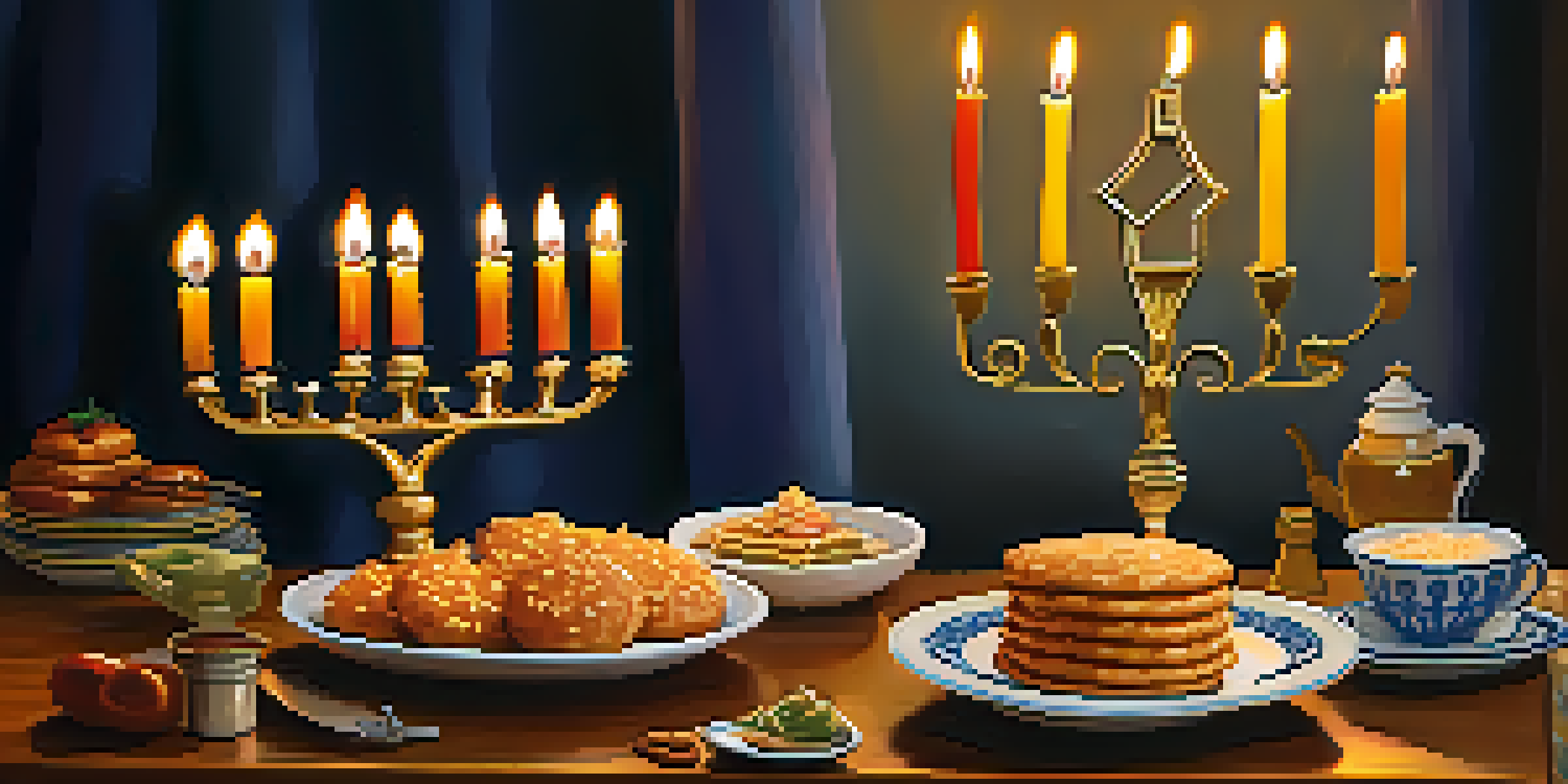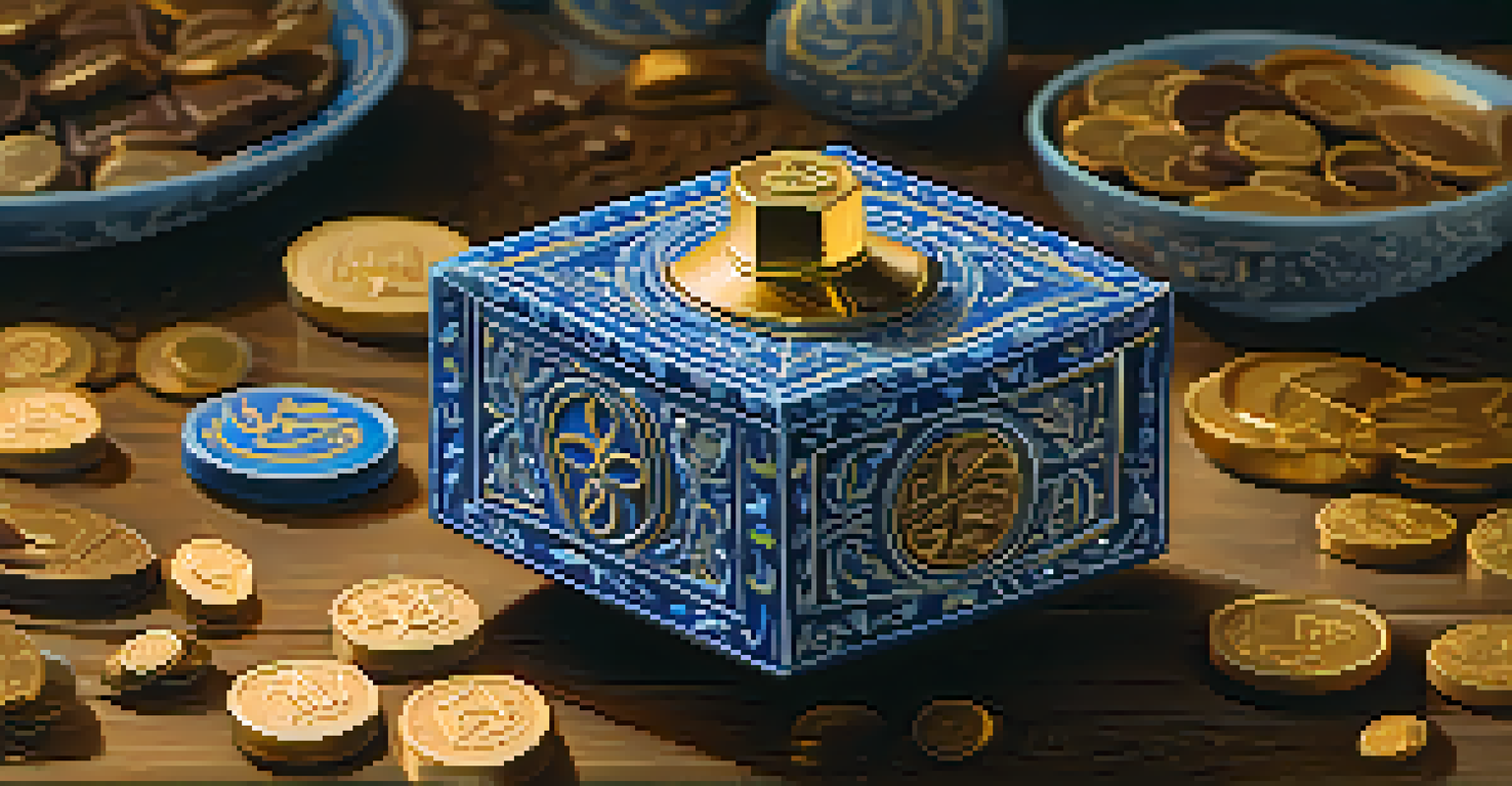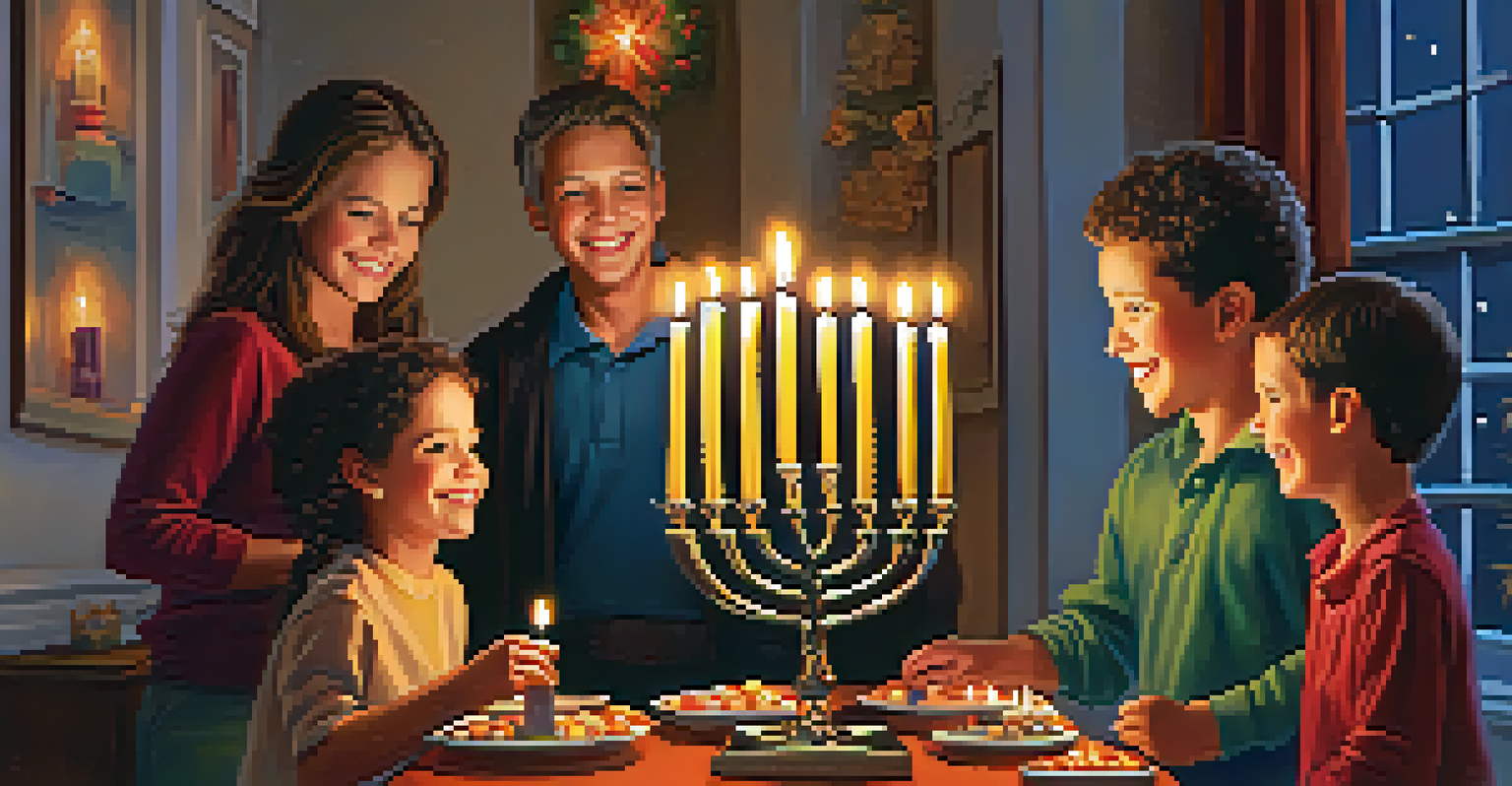Hanukkah: Celebrating the Festival of Lights with Joy

What is Hanukkah and Why Do We Celebrate It?
Hanukkah, also known as the Festival of Lights, is a Jewish holiday that commemorates the rededication of the Second Temple in Jerusalem during the second century BCE. The celebration lasts for eight days and nights, starting on the 25th day of Kislev, according to the Hebrew calendar. This festival is a time for family gatherings, religious observance, and joyful festivities.
The candles that we light on Hanukkah are a symbol of the miracles that we have experienced, and a reminder that we all have the power to create light in our lives.
At its core, Hanukkah celebrates the miracle of the oil, where a small amount of oil, enough to last just one day, miraculously burned for eight days in the Temple's menorah. This event symbolizes hope, resilience, and the enduring spirit of the Jewish people. Understanding this background enriches the celebration and highlights its significance.
Through the ages, Hanukkah has evolved into a holiday that emphasizes not only religious devotion but also family unity and cultural identity. It serves as a reminder of the importance of faith and perseverance in the face of adversity, making it a cherished occasion for many.
The Symbolism of the Menorah in Hanukkah
The menorah, a nine-branched candelabrum, is one of the most recognizable symbols of Hanukkah. Each night, one additional candle is lit, starting with the shamash, or helper candle, which is used to light the others. By the end of the eight nights, all eight candles are glowing, representing the miracle of the oil.

Lighting the menorah is not just a ritual; it’s a way of publicizing the miracle of Hanukkah. Families often place their menorahs in windows or doorways to share the light and story with their neighbors. This act fosters a sense of community and encourages discussions about Jewish traditions and beliefs.
Hanukkah Celebrates Resilience
The holiday commemorates the miracle of the oil and symbolizes hope and perseverance for the Jewish people.
Furthermore, the menorah's light signifies the triumph of light over darkness, both literally and metaphorically. It serves as a powerful reminder that hope and faith can shine even in the darkest times, inspiring individuals to keep their spirits high and their beliefs strong.
Delicious Traditions: Food During Hanukkah
Food plays a significant role in Hanukkah celebrations, with traditional dishes that are both delicious and meaningful. One of the most popular foods is latkes, which are crispy potato pancakes fried in oil. This dish symbolizes the miracle of the oil and is often served with applesauce or sour cream.
Hanukkah is not just a celebration of the miracle of lights but a reminder of resilience and the enduring spirit of the Jewish people.
Another beloved treat is sufganiyot, which are jelly-filled doughnuts that are also fried in oil. These sweet delights are enjoyed by both children and adults alike, adding a festive touch to the celebration. The act of eating these fried foods reminds families of the miraculous oil that lasted for eight days.
Sharing meals during Hanukkah strengthens family bonds and creates lasting memories. It's a time to gather around the table, share stories, and enjoy the flavors that have been passed down through generations, making the holiday even more special.
Fun Activities: Games and Traditions for Families
Hanukkah isn’t just about religious observance; it’s also a time for fun and games! One popular activity is playing dreidel, a spinning top game that is both entertaining and educational. Each side of the dreidel has a Hebrew letter, representing a phrase that tells the story of the Hanukkah miracle.
Families often play for chocolate coins, known as gelt, which adds a sweet incentive to the game. This simple yet enjoyable pastime fosters a sense of togetherness and allows children to learn about their heritage in a playful way. It’s a wonderful way to keep the spirit of the holiday alive while creating joyful memories.
Menorah Lighting Unites Families
Lighting the menorah each night fosters a sense of community and serves as a public reminder of the Hanukkah miracle.
Beyond dreidel, many families also engage in arts and crafts, decorating their homes with Hanukkah-themed items. These activities not only spark creativity but also deepen the appreciation for the holiday's significance, making it a cherished time for families to bond and celebrate together.
The Spiritual Significance of Hanukkah
Hanukkah is rich in spiritual meaning, serving as a time for reflection and gratitude. It encourages participants to consider the themes of freedom and religious liberty, reminding us of the struggles faced by the Jewish people throughout history. This aspect of the holiday resonates deeply in today’s world, where the fight for freedom continues.
Many families use this time to engage in prayer and lighting the menorah, integrating these practices into their daily routines. These spiritual elements foster a deeper connection to their faith and heritage, allowing individuals to reflect on their beliefs and values amidst the festivities.
In essence, Hanukkah is not just a celebration of past miracles but a call to action to embody the spirit of resilience and hope in our own lives. It invites everyone to consider how they can contribute to a brighter future for themselves and their communities.
Gift-Giving: A Modern Twist on Tradition
While gift-giving is not a traditional aspect of Hanukkah, many families have embraced it as a way to celebrate the holiday in modern times. This practice often involves giving small, meaningful gifts that reflect the values of the holiday, such as books, games, or handmade crafts. These gifts serve as tokens of love and appreciation.
The act of giving gifts during Hanukkah can also be a way to teach children about generosity and kindness. By focusing on thoughtful presents rather than materialism, families can instill the importance of giving back to the community and supporting those in need.
Food Traditions Enhance Celebrations
Traditional foods like latkes and sufganiyot play a significant role in Hanukkah, creating lasting family memories.
Ultimately, the emphasis on gift-giving can enhance the joy of Hanukkah, creating a sense of excitement and anticipation. It’s a delightful way to bring families together and express love and gratitude during this special time of year.
Celebrating Hanukkah Around the World
Hanukkah is celebrated by Jewish communities worldwide, each adding their unique customs and flavors to the festivities. In places like Israel, the holiday is marked with public menorah lightings and festive concerts, creating a vibrant atmosphere filled with joy and unity. These communal celebrations highlight the shared heritage of the Jewish people.
In America, many families incorporate various traditions, blending cultural influences that reflect their diverse backgrounds. From hosting Hanukkah parties with friends to participating in community events, the holiday is an opportunity for connection and celebration. It illustrates how traditions can evolve while still honoring their roots.

No matter where it is celebrated, the essence of Hanukkah remains the same: a time for family, joy, and reflection. It’s about coming together to celebrate not just a historical event, but the enduring spirit of a community that cherishes its traditions and values.